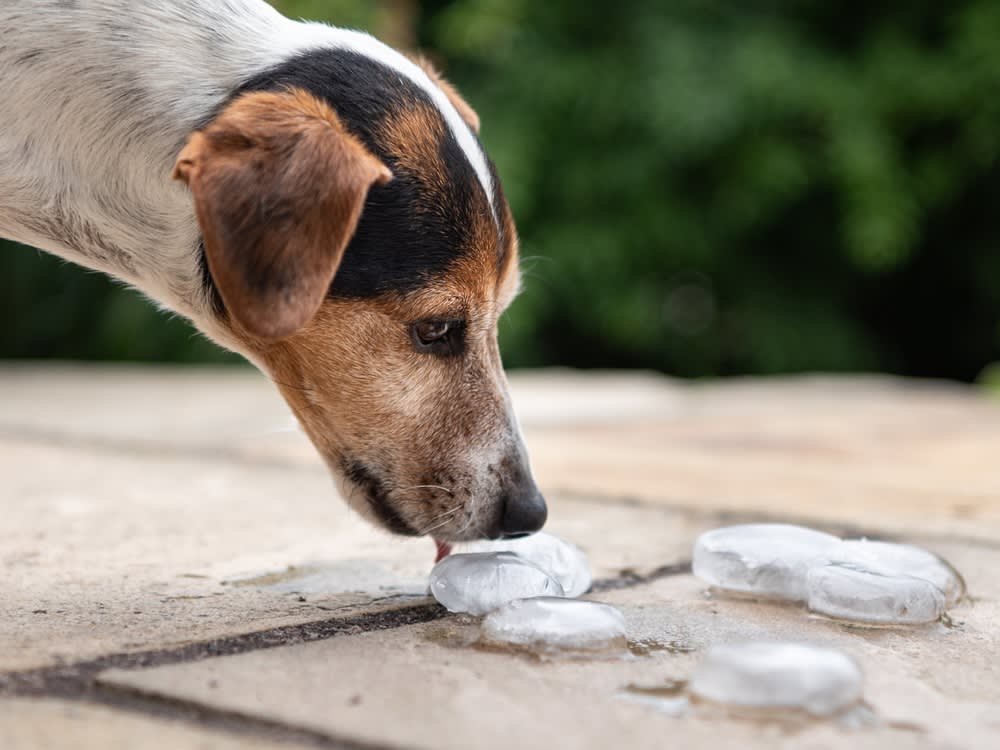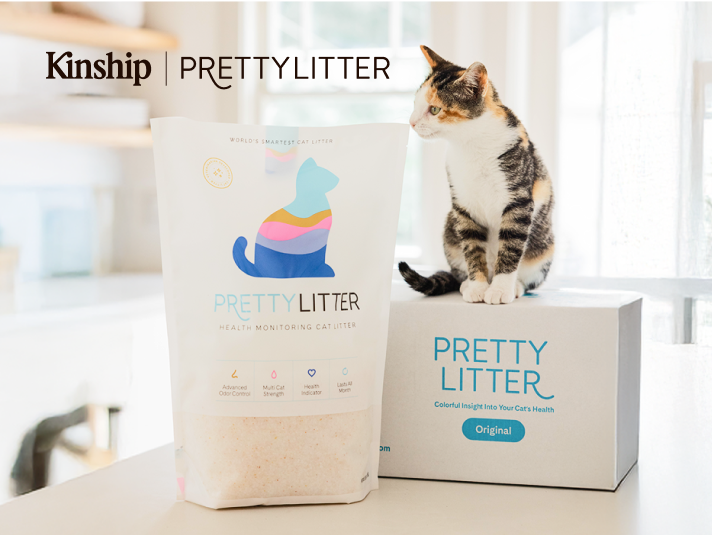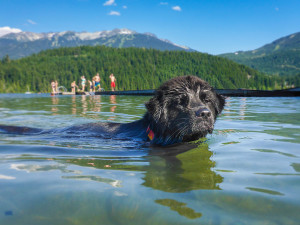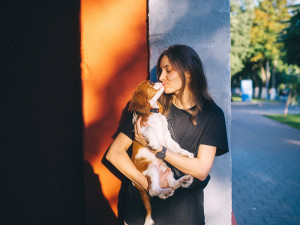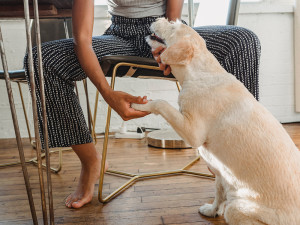Is it Actually Dangerous to Feed Ice to Your Dog?
The rumor keeps going around.
Summer is here, and that means it’s time to post up at our local beaches and pools, challenge the world record for most watermelon eaten in a day, and obsessively monitor our dogs for signs of heat strokeopens in new tab.
We all want to make sure our dogs stay cool, and for people, at least, that often means downing a tall glass of water with ice. But rumorsopens in new tab have spread for yearsopens in new tab that ice can actually be dangerous for our best buds. As temperatures rise and the handheld fans come out, I’ve been wondering: Could a well-intentioned bowl of ice water be a bad idea?
Save on the litter with color-changing tech that helps you better care for your cat.
If there’s one thing I’ve learned on Beyoncé’s internetopens in new tab, it’s that you can’t believe everything you read. So, I asked the experts to melt the chatter and get straight through the facts.
Are ice cubes safe for dogs?
In short, yes. In fact, when asked if they knew where someone might have gotten the notion that ice cubes are not safe for dogs, both veterinarians I spoke with said they had no idea.
“Having worked in a busy metropolitan emergency hospital for more than 30 years, I never had a patient that came in as a result of eating ice cubes,” says Dr. Jerry Klein, a veterinarian with Corey’s Canine Corner. So, if you and your dog are panting in the backyard, feel free to hand over an ice cube or two to cool them down.
Better yet, the vets suggest, you could try dropping some ice into your dog’s water bowl. “With some dogs, ice cubes in their water bowls can encourage them to drink water, which can help keep them hydrated on summer days,” says Dr. Leslie Juarez-Law, medical director for West Loop Veterinary Care.
If you plan to give your dog ice, take these two precautions:
Make sure the ice cube is a size they can manage without choking. Be especially careful with this if you have a puppy, who can more easily choke on anything they are chewing.
Consider your dog’s dental health beforehand.
“Although they are generally not a problem for dogs with healthy, well-cared for teeth,” Dr. Juarez-Law says, ice cubes “could lead to pain for dogs with dental disease.” If your dog’s vet has called out dental-health problems with your pup, speak with them first about whether ice cubes are an appropriate treat.
How much ice can we give our dogs?
You know the old saying, don’t you? Everything in moderation.
Ice cubes are perfectly safe for dogs, and at the same time, our pups’ primary source of fluid should always be water — even in the summertime. “Ice cubes can be an occasional treat for dogs,” Dr. Juarez-Law says, especially if it entices them to drink more water.
As refreshing as ice cubes might be, Dr. Klein agrees they’re no substitute for fresh, cool drinking water. But if you happen to be sitting outside with some icy water yourself, feel free to spare some for your dog. “A couple ice cubes given during the course of the day as a treat is also fine,” Dr. Klein says.
Where did the rumor about dogs and ice start?
Snopes first fact-checkedopens in new tab this rumor in 2014, and according to opens in new tab USA Today, the warning behind the rumor appears to date back to a post from 2010.
“Please do not give your dogs ice cubes or other frozen items in the heat to cool them down!” the old postopens in new tab reads. “...Giving ice cubes to dogs in the heat has the opposite effect of cooling.”
The post has repeatedly recirculated over the years and has inevitably been debunked every time it goes viral.
How else can I keep my dog cool in the summer?
Once you’ve gotten your dog hydrated and fed them a couple ice cubes, consider these bonus tips.
Stick to the shade.
Do you want to spend all day in full sun with no AC in 90-plus-degree weather? Neither does your dog. On warm days, keep your dog in a cool, shaded area with access to lots of fresh water.
Limit exercise as weather demands.
Don’t take your dog for an hour-long walk at noon, when the harsh sun will be beating down on both of you. Instead, make time during the early morning or late evening, when you both can enjoy a refreshing breeze. Avoid exercise altogether during especially hot days.
Consider your dog’s age, breed, and more.
During these months, it’s important to be attuned to your dog’s needs. “Dog owners should be aware of the temperature and be clear about its impact on their dog,” Dr. Klein says. That means thinking about how various factors impact their experience in extreme heat.
Dogs with heavier coats; puppies and older dogs; brachycephalic breeds; and dogs with underlying health problems will all be more susceptible to heat than other dogs. So be extra cautious and look for signs that your dog is feeling the heat.
When in doubt, accessorize.
Wondering if the ground is too hot for your dog to walk on? Take off your shoes and find out. “If the temperature has made the sidewalk, street, beach, or other surface too warm for you to walk on barefoot,” Dr. Klein says, “it’s probably too warm for your dog to walk on it.”
If you’re worried about scorching your dog’s paws, try out some cooling bootiesopens in new tab — or pick a less terrible time of day for your walk.
And keep a close eye on your pup.
Whether you’re running an errand or out for the day, it’s important not to leave your dog alone where they could overheat. That could include anything from a backyard with no shade to a hot car. Even if you’re just running into the store for a quick pit stop, Dr. Klein says, never, ever, ever leave your dog unattended in a car.
What are the signs my dog is overheating?
The key to staying safe in the summer is to know the signs your dog is overheating. It can happen in as little as 30 minutesopens in new tab, so it’s important to stay vigilant. And if you suspect your dog is overheated, bear in mind that ice cubes are not an appropriate response.
Juarez-Law advises that dog parents watch for the following signs:
Drooling
Lethargy
If you notice any of these behaviors, move your dog to a cool, well-ventilated space. Cool, damp towels can help, and Dr. Juarez-Law advises seeking veterinary care immediately in case your dog needs any further support to recover.
Just like taking human kids to the pool, summer with dogs is all about balancing fun and safety. With a little care, this time of year can be a blast for everyone. I’ll see you out there — just as soon as I find a 14-foot umbrella for me and my dogs to hide under.
